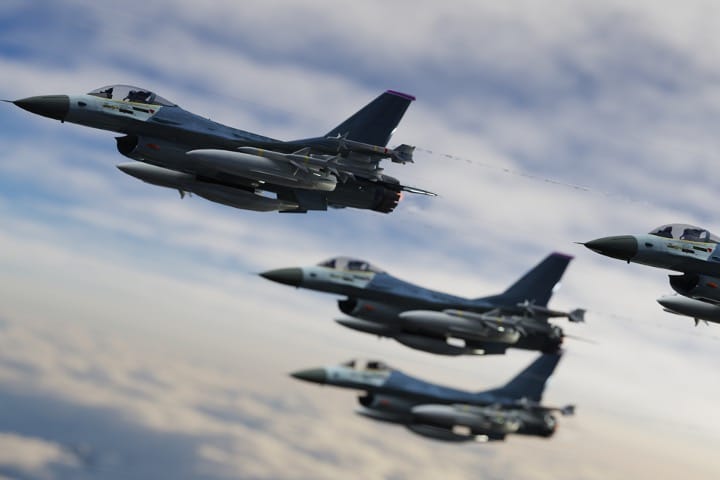
On May 15, the Italian daily ANSA reported that Hungary would block €500 million of EU funds from the European Peace Facility (EPF) allocated for procuring weapons meant for Ukraine.
According to the report, sources allege that Budapest’s action was a response to Kyiv’s recent moves to undermine Hungarian assets. Hungary’s veto would target the eighth tranche of the series of EPF funds meant to offer military support to Kyiv, initially poised to be disseminated on May 22.
Budapest supposedly insisted that Brussels provide “guarantees” for the EPF to ensure its “global” horizon instead of solely weaponizing Ukraine. Nonetheless, Hungary’s veto is reportedly a retaliation against Ukraine’s Volodymyr Zelensky’s divulged plans to assault the Druzhba pipeline in order to weaken the Hungarian economy, as well as Kyiv’s accusation that the Hungarian OTP Bank aided Russian actions in Ukraine by continuing to function in Russia. An anonymous Hungarian source told the local news outlet Index that Hungary blocked the €500 million in EPF funds mainly as a response to the leaked Ukrainian plans to undermine vital Hungarian infrastructure and Kyiv’s OTP decision. The official pointed out:
The members of the government consider the sanctions against the OTP an anti-Hungarian move.… Until Ukraine does not correct [this mistake], the Hungarian position will not change, [because] sanctions are written in Brussels, not in Kyiv.
Based on statements from the Ukrainian anti-corruption agency NAZK, Kyiv sanctioned OTP Bank as it claimed the bank had a key role in the Russian bank sector operating in the republics of Donetsk and Luhansk, as well as disbursing discounted loans to Russian army servicemen.
Rebutting NAZK’s allegations, the OTP maintained these allegations were not true. Rather, the bank posited that it “operates in full compliance with local and international legislation in all its markets, including [European] sanction regulations.” Moreover, the bank highlighted that it had instantly stopped all activities in the occupied territories back in 2014. Despite OTP having a market share of only 0.17 percent in the Russian economy as of May 16, it has been sanctioned, unlike “international banks and other companies with a significantly larger local presence” that were excluded from the NAZK list, the bank asserted, questioning the motives of Kyiv’s decision. One such international bank that has escaped Ukrainian sanctions thus far is the Raiffeisen, a bank much larger than the OTP.
Additionally, OTP maintained its adherence to the official stance of Hungary and the EU, that it did not acknowledge the independence of the territories nor did it conduct businesses on their soil. Notably, OTP mentioned that NAZK could have made a mistake, as there is a Russian town also called Donetsk, which until recently had an OTP branch.
Also, OTP said that it has given no preferential treatment, as its Russian branches have been simply adhering to local regulations that exempt army personnel involved in war from loan payments.
Previously, The New American reported that, according to leaked Pentagon documents, Zelensky had privately wanted to occupy Russian cities and destroy a crucial crude oil pipeline between Russia and Hungary, despite Hungary being a NATO member.
The leaked information divulged that Zelensky had suggested blowing up the Druzhba oil pipeline to cripple Hungarian infrastructure, which relies on Russian oil, based on an article by The Washington Post.
Zelensky’s plans to undermine Hungarian infrastructure also emerged in February of this year during talks with Ukrainian Deputy Prime Minister Yulia Sviridenko.
“Ukraine should just blow up the pipeline and likely destroy Hungarian [Prime Minister] Viktor Orbán’s industry, which is based heavily on Russian oil,” Zelensky reportedly said.
Meanwhile, on May 16, Britain and the Netherlands pledged to set up an international fighter jet coalition to support Ukraine, after Zelensky’s diplomacy tour of western Europe to lobby for F-16s and other aircraft. Following the Ukrainian leader’s meetings with British and Dutch prime ministers Rishi Sunak and Mark Rutte, the leaders “agreed they would work to build [an] international coalition to provide Ukraine with combat air capabilities, supporting everything from training to procuring F-16 jets,” Downing Street said.
Ukraine’s Foreign Minister Dmytro Kuleba delivered a speech on May 17, stating that the coalition is poised to be established later this year, following which “everything will happen very quickly.”
Thus far, Poland and Slovakia have deployed 14 and 13 Soviet-era MiG-29 fighter jets to Ukraine, respectively. However, Kyiv is setting its sights on more-advanced weapons, especially the American-made Lockheed Martin F-16s, presently used by over 20 nations. “Our priority is the F-16, but we are not canceling other aircraft options. It’s like with tanks,” Kuleba elaborated.
On May 14, French President Emmanuel Macron pledged to train Ukrainian fighter jet pilots as soon as possible. Likewise, Belgium has also “confirmed its readiness to train” pilots. Having said that, it has not provided further details about sending some of its F-16s to Ukraine.
For its part, Britain, which does not have any F-16s in its fleet, would lobby other countries that do. Sunak said that Britain was poised to start its training scheme for Ukrainian pilots this summer, while pledging a new package of long-range drones in the near future.
The Netherlands and the U.K. hope that more countries will join them in forming the “fighter jet coalition” in the coming months. Both countries advocated for its establishment during the Council of Europe (CoE) Summit in Reykjavik that ended on May 17, and are planning to lobby for it during the G-7 Summit in Japan.
Sunak offered a glimpse of discussions that have been underway:
Other countries are involved. I’m talking to those leaders. I’ll be doing more of that this week in my international engagements. We’re very keen to build that coalition of countries to give Volodymyr and his people the aircraft support they need.
Indeed, persuasion certainly has a role to play in the entire business of arms procurement for Ukraine. Yuriy Sak, an advisor to Ukrainian Minister of Defense Oleksii Reznikov, said that while Britain, Italy, France, and Germany do not have F-16s to offer Ukraine, “they have an important voice in the international coalition,” in “encouraging” allies such as America, Turkey, Belgium, and Denmark to supply the much-coveted aircraft.






















































